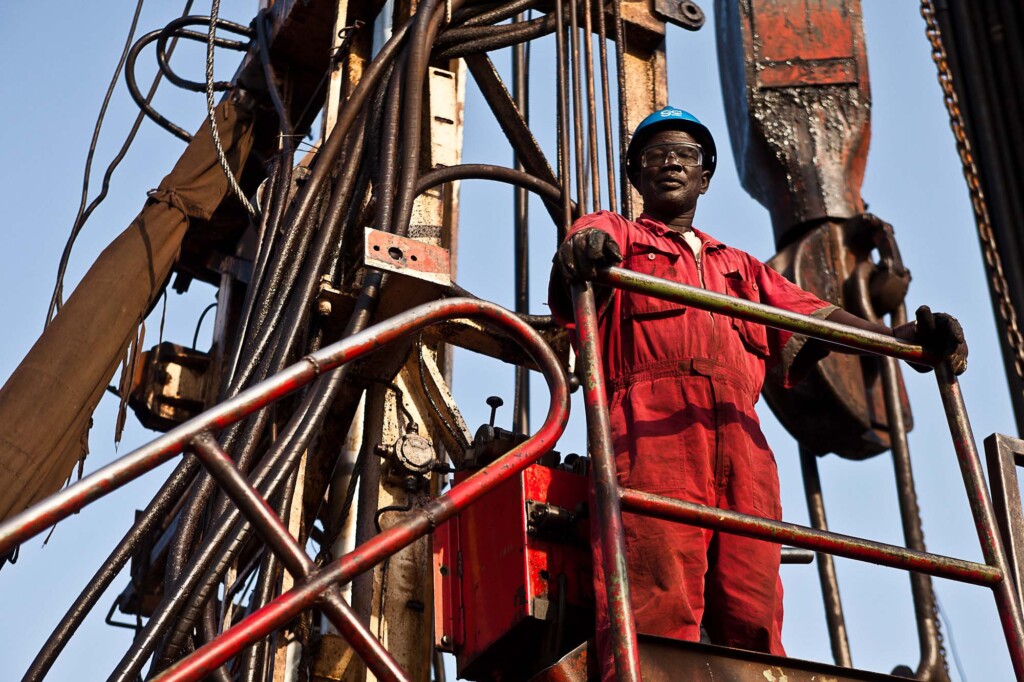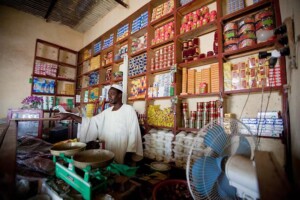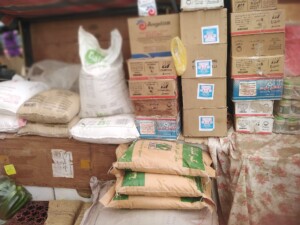South Sudan delegation in Port Sudan for oil export restart talks

An oil worker in Unity State, South Sudan (File photo: Creative Commons / Enough Project)
A high-level delegation from South Sudan is visiting Port Sudan to discuss the long-anticipated resumption of oil exports following a seven-month suspension. The delegation, who arrived earlier this week, engaged in talks with Sudanese government representatives, with both sides agreeing to host a workshop focused on restarting oil operations.
Sudan’s Minister of Energy and Oil, Mohiyeddin Naeem, confirmed that the talks addressed preparations to resume the flow of South Sudan’s crude oil. The suspension had severely impacted both nations, with the minister blaming “brutal attacks” by the paramilitary Rapid Support Forces (RSF) for the disruption.
Naeem noted that both parties had agreed on the technical requirements for the carrier pipeline, adding that a joint workshop would involve experts from both countries to ensure a smooth restart of operations.
Many key oil facilities remain under RSF control, raising serious security concerns. “Ensuring the safety of workers, including technicians and engineers, is crucial for resuming operations,” said Hamid Suleiman, undersecretary of Sudan’s Ministry of Energy, in an interview with Radio Dabanga last month.
Chol Deng, undersecretary of the Ministry of Petroleum for South Sudan, emphasised the strong relationship between the two countries. Undersecretary Deng also conveyed that the Vice President of Sudan’s Sovereignty Council had instructed both countries to collaborate closely until oil exports are fully resumed.
‘Oil revenue concerns‘
El Basha Tebeig, advisor to RSF Commander Mohamed ‘Hemedti’ Dagalo, claimed in a post on his official X account (formerly Twitter) on Monday that oil revenues were allegedly being used to support the war effort.
He accused the government in Port Sudan of “looting” the country’s wealth and claimed that funds from the Sudan-South Sudan border oil fields in Heglig, which produce “22,000 barrels per day, were being used to purchase arms and aviation equipment”, according to the advisor.
Tebeig alleged that communities near oil production sites had been forcibly displaced, with dire humanitarian consequences. He further stated that South Sudan exports 80,000 barrels of oil per day, paying the Sudanese government $14 per barrel for the pipeline, money he claims is also being used to fuel the conflict.
Political analyst Ahmed El Sheikh downplayed the significance of oil revenues in sustaining the war, arguing that military operations had continued uninterrupted even during the suspension of oil exports.
In an interview with Radio Dabanga, he stated that the conflict, which erupted on 15 April, had already created a “complex reality” in Sudan, with people in Khartoum, El Gezira, and Sennar losing everything to looting.
El Sheikh suggested that oil revenues should instead be channelled into essential services, such as healthcare, infrastructure, and energy. He doubted that oil money would change the course of the war, as the fighting has persisted despite the cessation of southern oil exports.











 and then
and then